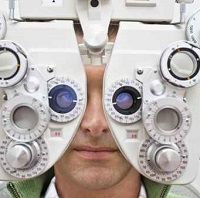Regular Eye Examinations? Not Among Medicare Beneficiaries Diagnosed with Diabetes
Patients with diabetes may need prompting and encouragement to meet recommended levels of eye care. Having health insurance coverage doesn't seem to increase adherence to this recommendation.

Regular eye exams catch visual problems early and in many cases, prevent vision loss. For people who have type 2 diabetes mellitus, the need to monitor the eyes routinely is great due to the risk of diabetes-related retinal disease. For some patients, the biggest barrier to good eye care is cost; without insurance, many patients are forced to pick and choose among the many recommended health screening. A trip to the eye doctor may not seem important.
Elderly patients who have Medicare are covered for annual eye exams. A new study in published online in the journal Ophthalmology indicates that they, too, skip screenings.
The researchers conducted retrospective analysis of a subset of Medicare claims (N=2,151) to look for factors associated with regular eye examination receipt among elderly individuals diagnosed with glaucoma, age-related macular degeneration, or diabetes. The researchers followed patients for 5 years divided into four 15-month periods. The primary outcome measure was the number of 15-month periods with an eye examination.
Only 1/3 of study participants saw an eye care provider in all 4 follow-up periods. Approximately 25% of beneficiaries saw an eye care provider once or not at all during the 5 year period.
Older, more educated and married Age, marriage, education, and patients with more comorbidities tended to see an eye care provider more often.
Beneficiaries with diagnosed diabetes and no eye complications were the least likely of all patients to see an eye care provider annually. Men, patients with limited activities of daily living at baseline, and those with impaired cognitive function saw eye care providers less often than others. When the nearest ophthalmologist was geographically distant, frequency of eye examinations also decreased.
Patients with diabetes may need prompting and encouragement to meet recommended levels of eye care. Having health insurance coverage doesn’t seem to increase adherence to this recommendation.